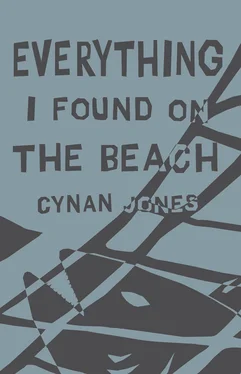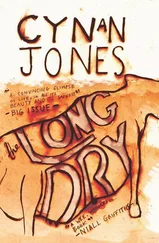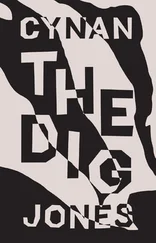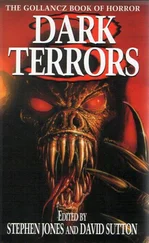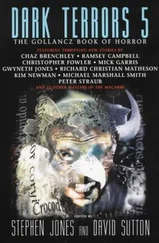The owlish man nodded.
“Pick them up from the ferry.”
The thickset redhead got out, leaving the black sports bag on the seat.
As he left the car he was stepping from the limo, a girl on either arm. They were like models. Sequined dresses. The flashbulbs crashing off like a firework celebration, wearing the sharp dinner jacket and the heavy belt about his waist like a cummerbund.
He walked into the station to meet his crowd again and behind him the owlish man drove off. The redhead was holding the cup as if it were a mic. “My nose held up,” he told the reporters, “I had to protect it, but I kept it clean and it held up.”

Stringer went up and knocked at the door and the big man’s mother opened it. In his long black coat, Stringer had a look of priest-like officiousness, of a finicky clerk. It was a thing for him to try to dress well after growing up where he did, like hiding a damp bit of wall with a painting.
“Good afternoon, Mrs. Gleeson.” He beamed. The smile didn’t suit Stringer’s face. It made him look odd, like a man wearing the wrong hat.
The big man appeared behind his mother in the corridor of the small house. He was dabbing at his mouth with a napkin with the same strange deft way he had rolled the cigarettes. “Will you come in, Declan? And your friend,” asked the mother. She looked past Stringer at the driver in the car. You could just see him through the window, scratching at his red face.
“I think we’re ready to go,” he said. He was thinking of getting to the port and of the few hours’ trip after that on the ferry.
“Get away! You just go back and finish your tea there, Galen.” The big man looked bashfully at Stringer. “You can’t work without your tea.”
The big man went through back to the kitchen and Stringer followed him in. There was no arguing with her.
“Will your friend not come in?” said the mother.
“No,” said Stringer. “He’s fine.” He wanted to say: “He’s not house-trained.” He had this thing against the lower ranks.
“Will you have some food?”
“No, thank you, Mrs. Gleeson,” said Stringer. He was swallowing these big bags of impatience and he thought of the driver waiting in the car. He studied the woman, trying to work out how she could produce such a thing as the big man. Then he looked down at the big man’s plate. “It’ll be the food,” he thought. There was a pile of boxty and the grotesque looking stew. Stringer glued this ridiculous smile on, like a salesman.
“Will you not even have a cuppa?”
“No, thank you, Mrs. Gleeson. We ought to be going.” He looked daggers at the big man. He was wolfing the huge plate of food. He couldn’t eat any quicker.
“Don’t you rush,” said his mother. “You’ll get the wind. I’ve not made your sandwiches yet.” She was busy with the bread and the stuff on the unit. It was like she was under some sort of automatic order to feed things.
“Will you want some sandwiches too, there, Declan?”
“No,” said Stringer.
“There’s plenty here.”
He pulled himself up. “No, thank you, Mrs. Gleeson.”
Stringer could feel the time peeling away. He sat and stared nastily at the big man and looked round the room. There was the sound of the mother making sandwiches. Stringer thought of the trip ahead. He understood the need to keep up the pressure of fear and the engine that had to drive that. His devoted little furiousness at it came mostly from the stupidity of people. They knew the score, why did they have to test it? The engine was relentless. You just did not get away with it, it couldn’t be allowed, so why did they test it? That was what he did. He kept the machine oiled.
He looked around the warm little room. There were pictures of the two boys, the other one much more normal sized, much more his size, more natural to the woman, he thought. There was a picture of the woman’s late husband and an Irish flag in the corner. Stringer felt this pang of jealousy at the pride in the house. He felt a jealousy at the familial love it represented. He didn’t understand this Catholic thing. He’d always felt like an outsider to it. He’d like to have grown up here, not on the dingy, hungry street he did. Here and there around the place were silly little shamrock ornaments and leprechauns. Against that, the big man was like some big overgrown child.

Hold walked out over to the marina, the water calmed inside the vast breakwater truly seagreen, settled.
The beach was strange to him sitting against the town because the town had a strange, spread-out look here. He took it in. Thin shores of white, flinty pebbles. A low howl across the water he could not place at first, eerie, that seemed to be some premonitory message from the sea beyond the break.
“I have to keep a feeling of strength now,” he told himself. “Keep that strength, that feeling of strength. Just concentrate on holding that.” He thought of it as something he was carrying, that he couldn’t put down however heavy it got.

He looked out, onto the mainland and the mountains, could see the clouds smudging up with a later promise of rain. He knew the sort. It would be flat, light rhythmic rain, and it would come over, almost like a tired patch, later in the afternoon.
He looked at the breakwater a while then walked a little way farther and sat and put the bag with the rabbits down beside him and pushed it with his foot out of the sun under the bench. He looked absently at the plaque on the bench, in memory. He thought of someone who must have loved to sit and watch this view. “It has to happen somewhere public,” he thought. “Somewhere like this.”
He looked down at the sore on his thumb, lifted now and raised into an angry welt. He pushed at it with the finger and thumb of his other hand and it swelled with tension. The pain was sharp and small and focused and he picked at the top of the welt with his rough thumbnail until the skin split. The ring of buttermilk pus gave through the skin with a minute breaking of tension, and the splinter lifted in the fluid and spilled out onto Hold’s hand. He picked it up. He rubbed the pus and the pink water off his hand and looked at the shard. Brick. “It’s brick from the house,” he thought.
He turned round and took in the one mountain, rising strangely out of the flat ground of the island. “That would be a good place to get to, to get an idea of the land,” he thought. “It won’t happen there though. It has to be somewhere like this.” He turned back and scanned the promenade, wiped his hand clean again, and flicked the splinter of brick out at the beach. Here, the bluish rock was igneous and looked liquefied, twisted under geology’s great pain rather than snapped like the rocks on the beach he was used to.
The watery pus was running a little on his hand and he stared at it, this repellent stuff from inside himself. He could have no idea where this thing would be. He could not second guess them. Why would it be different from selling anything else? I have what they want. If it falls to me to pick it, I’ll pick somewhere like this. Somewhere exposed. Somewhere where I’m in sight of people. He fought the urge to get up and go down to the beach and put his hand in the water.

They sat in the car and went off, the red-faced man driving them out past the tidily careful small gardens. In the back, Stringer felt the little hatred again, a strange despising jealousy at the tame houses. He felt there was a kind of ridiculous Easter egg prettiness to them. It had riled him, being called Declan. He was Stringer to everyone now. But something was always there, bringing you back to what you were, not letting you move on. It was humiliating. A wagging finger.
Читать дальше
